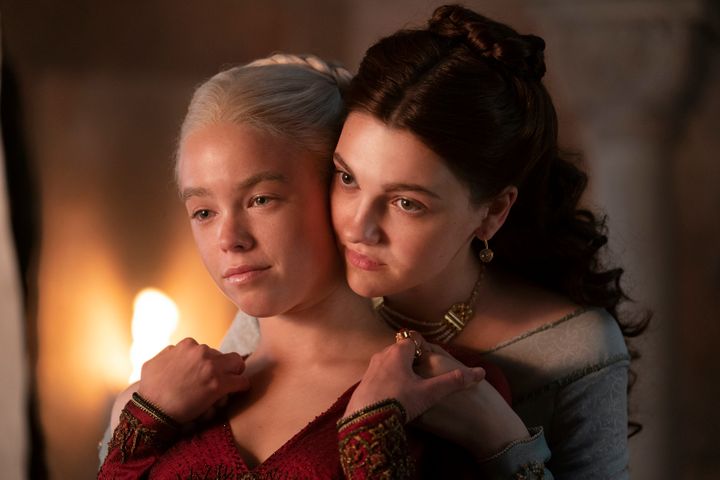
Milly Alcock let her inner fiery Targaryen slip in a new interview with Nylon.
The “House of the Dragon” star, who plays a young Princess Rhaenyra Targaryen in HBO’s “Game of Thrones” prequel, told the magazine in an article published Wednesday that some fans don’t seem to be picking up how their behaviors echo the gender disparities highlighted in the series.
Alcock pointed out that her character’s pivotal friendship with Alicent Hightower (Emily Carey) is frayed due to the very patriarchal world they live in — a conflict emphasized in the show.
“‘House of the Dragon’ highlights yes, the patriarchy, yes, misogyny, but also the internalized misogyny that these two women are forced to face,” she told the magazine. “They’re forced to be put at odds with one another by the choices by men.”
“But what I found quite hilarious is that the fan base is also putting the actors, the young Alicent and the young Rhaenyra, at odds with each other, and choosing who’s better, also by decision of mostly men. So I think that it’s really just fucking ironic.”

Alcock’s comments come weeks after Emily Carey, who plays young Alicent in the series, said harassment led her to delete her Twitter account after she said her character was “multifaceted” and had “so many layers to her” at San Diego’s Comic Con.
It’s unclear what specific comments Alcock was referring to. A Twitter search of her name showed posts that mostly praised her character.
“House of the Dragon” is based on a few chapters in George R.R. Martin’s book “Fire & Blood,” a history of the fictional House Targaryen. In the book, Alicent is painted as a villain and main foe of Rhaenyra.
“Fire & Blood” reads like a broad textbook, with an omniscient narrator gathering the history of House Targaryen from various sources, including maesters, septons, literature and a guy named Mushroom — and these accounts tend to conflict with one another. Therefore, this history of House Targaryen is not super reliable, and the show has various versions of events it could potentially rely on.
The four episodes that have aired so far suggest the series is very interested in showing that whatever happens between Rhaenyra and Alicent is nuanced and greatly affected by the decisions of the more powerful men and institutions around them.
Read Alcock’s interview in full at Nylon.
